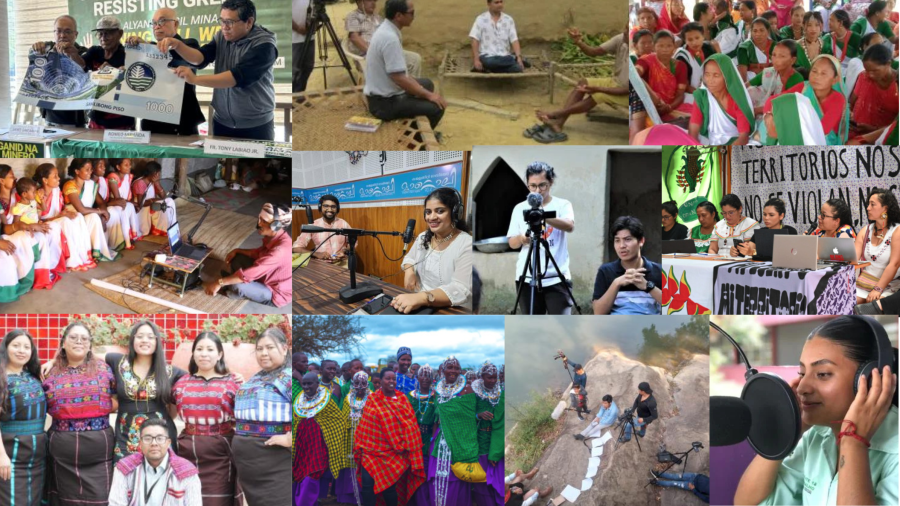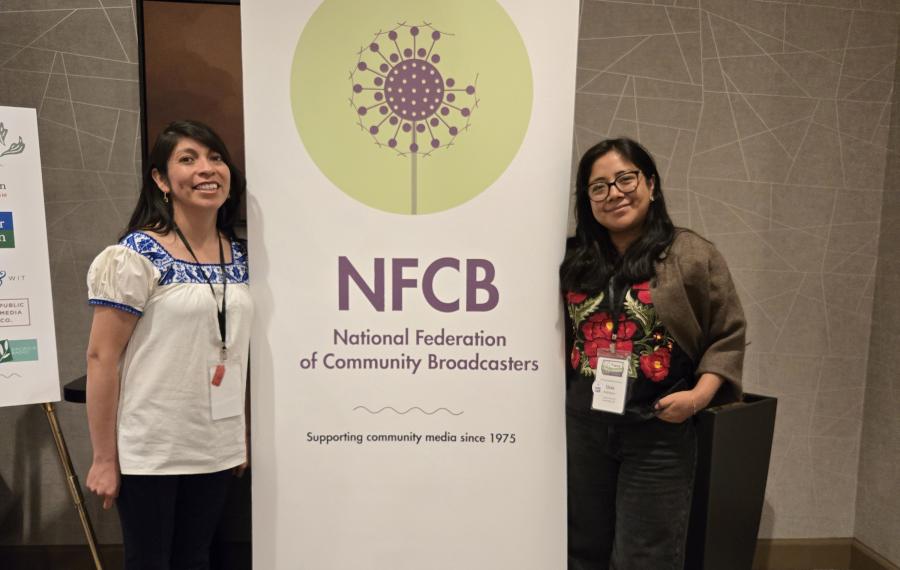
SIGN ON NOW TO THIS STATEMENT BY NOVEMBER 6, 2024.
This statement is to articulate the rights of Indigenous Peoples globally to express our deep concern that financial institutions are continuing to fail to respect, recognize, and strengthen the rights of Indigenous Peoples, and local communities, and in particular, the inherent cross-cutting impacts on biodiversity and climate.
The international banking sector’s policies and practices overall fail to assess, monitor, and measure the impact of their financing on driving systemic, negative, and long-term unacceptable biodiversity impacts. Actors in the global banking sector are not doing enough to assess, disclose, avoid, reduce, or mitigate adverse impacts on biodiversity as established in the Global Biodiversity Framework (GBF) Target 15.
Indigenous Peoples play a critical role in protecting the world’s remaining biodiversity hotspots. Research shows that lands and territories managed by Indigenous Peoples yield the same or better biodiversity outcomes than protected areas. Nature and biodiversity decrease at a slower rate on Indigenous lands, and yet, these areas are facing increasing threats and pressures from harmful development.
In light of the recent Sixteenth Conference of the Parties to the Convention on Biological Diversity (COP 16) and upcoming 29th session of the Conference of the Parties to the United Nations Framework Convention on Climate Change (COP 29), we call upon all financial institutions to create and implement policies that build upon the five key principles for banks to halt and reverse biodiversity loss. Banks and financial institutions must:
➔ Recognize and respect Indigenous Peoples’ rights. Fairly respect and implement bank-wide commitments to respect the rights of Indigenous Peoples, women, and local communities in line with international standards,[1] including their physical and intellectual property. These commitments should apply to direct and indirect bank clients, and to the “corporate group” as defined by the Accountability Framework Initiative. Commitments must be implemented appropriately across all the institution’s financial products and services. Banks should further ensure that Indigenous Peoples and biodiversity policies or frameworks are complementary and mutually reinforced.
Such commitments must be memorialized in robust policies, implemented in a way that truly monitors and protects the rights of Environmental Defenders affected by bank-financed activities, in line with Target 22 of the GBF, which aims to ensure access to justice, among other things, related to biodiversity by Indigenous Peoples and local communities.
We demand banks and the companies they finance to publicly maintain and fulfill their responsibility to respect Indigenous Peoples’ rights in line with the highest international legal standards regardless of the political party in power in a host country, a lack of host country laws to protect those rights or, where such laws exist, the inability or unwillingness of the host government to implement such laws. The responsibility remains in spite of host government laws or efforts that seek to criminalize the efforts and struggles of Indigenous Peoples and local communities to protect their land and territories, livelihoods, and traditions.
When Indigenous Peoples’ rights are violated, we call upon banks and financial institutions to take immediate action by establishing or actively participating in accessible, effective, and independent grievance mechanisms. These mechanisms must provide meaningful pathways for remediation, accountability, and justice for affected communities. Effective remediation includes reasonable and respectful timeframes, compensation, restoration of rights, or other forms of justice.
➔ Carry out robust due diligence that ensures the elimination of harmful financing, including, at a minimum in eight No Go areas and exclusion areas. No Go areas are those where direct and indirect financing for activities that are unsustainable, extractive, industrial, or environmentally and/or socially harmful should be prohibited, including in specific areas where the Free, Prior, and Informed Consent (FPIC) of affected Indigenous communities has not been obtained.
Banks should ensure that their own appropriate human rights due diligence and engagement with affected communities takes place early and throughout the lifecycle of a project or financing relationship and make clear its expectation for corporate clients to do the same. At all times the respect for Indigenous Peoples’ rights to participate in decision-making on matters that affect them should be guided by the principle of FPIC.
Bank policies must embrace the fact that financing of corporate activities can infringe on the rights of Indigenous Peoples and lead to further marginalization of those in vulnerable situations. This includes women, girls, elders, Indigenous Peoples in voluntary isolation or initial contact, Nomadic Peoples, and others in vulnerable situations. Bank engagement processes should recognize these risks, as well as require their recognition by clients, and involve diverse representation from the community, paying particular attention to the equitable participation of Indigenous women and others in vulnerable situations. Such engagement should be inclusive and fully consider impacts on people in vulnerable situations such that further vulnerabilities are not caused or exacerbated by projects. Bank policies should be rooted in the principle of non-discrimination.
➔ Obtain affected Indigenous Peoples’ Free, Prior and Informed Consent. Protecting biodiversity cannot be separated from the protection of the rights of Indigenous Peoples. To yield better biodiversity outcomes and as a critical condition to achieving these positive outcomes, banks must establish or strengthen, and implement policies, including grievance mechanisms, that respect and uphold the rights of Indigenous Peoples as prescribed in the United Nations Declaration on the Rights of Indigenous Peoples. Project level grievance mechanisms should be fair, accessible, and effective.
[1] United Nations Declaration on the Rights of Indigenous Peoples (UNDRIP); International Labor Organization’s Indigenous and Tribal Peoples Convention (ILO 169); United Nations Guiding Principles on Business and Human Rights (UNGP); and International Finance Corporation Performance Standard 7: Indigenous Peoples (IFC PS7).
For any questions, please contact / Si tiene alguna pregunta, comuníquese con / Pour toute question, veuillez contacter / Para qualquer dúvida, entre em contato com: IPPositionStatement@gmail.com



